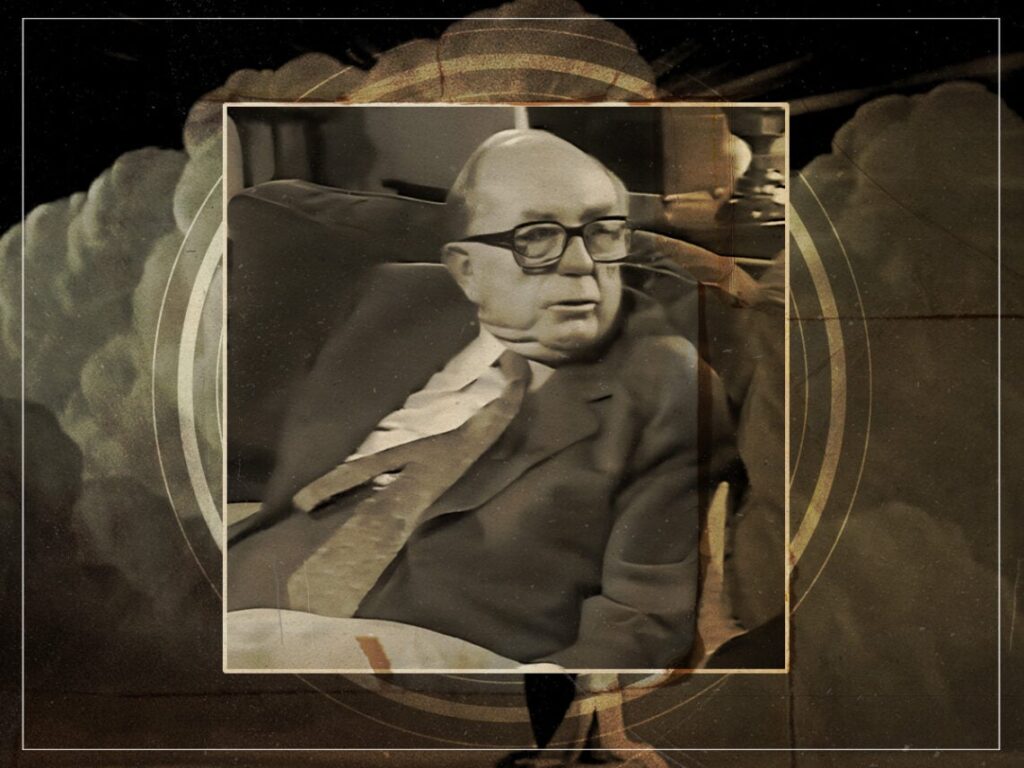Sidney Gilliat: Britain’s unsung hero of cinema
 Posted On
Posted On
(Credits: Far Out / YouTube Still)
The impact of British filmmakers on cinema has been of equal importance to that made by their American counterparts, but history has tended to forget about the unsung work of Sidney Gilliat.
For almost as long as the moving image has existed, filmmakers born in the United Kingdom have always resided among the medium’s leading lights, with many of them regarded as among the greatest talents to have ever penned a screenplay, produced a picture, or stepped behind the camera.
Michael Powell and Emeric Pressburger, Alfred Hitchcock, David Lean, Mike Leigh, Carol Reed, Ridley Scott, Christopher Nolan, Anthony Asquith, and Ken Loach are just some of them, but Gilliat was every bit as prolific as he was successful during a career that stretched from the 1920s right through to the 1970s.
He crossed paths with several of the aforementioned luminaries, too, co-writing Hitchcock’s The Lady Vanishes and Reed’s Night Train to Munich. He scripted both alongside Frank Launder, who would end up becoming the defining creative collaborator of his professional life.
Initially working together as a scriptwriting duo, they always had eyes on evolving into directors and producers, which bore fruit when they co-wrote and co-directed 1943’s propaganda feature Millions Like Us. If it was good enough for Akira Kurosawa, then beginning in the world of state-sponsored cinema was good enough for them.
They found a place for themselves that they could call their own, operating in the middle ground between cheap and cheerful genre fare and prestige moviemaking. They would develop projects together and work on the screenplays as a collective, but their different sensibilities saw them branch out in their own direction.
Gilliat preferred more socially-inclined comedy, whereas Launder leaned harder into farce. The 1945 drama Waterloo Road marked his first time flying solo. Following that, he began testing the water of other genres with the dramedy The Rake’s Progress, the thriller Green for Danger, the literary adaptation London Belongs to Me, a spy story called State Secret, and the biopic The Story of Gilbert and Sullivan, outlining his desire for versatility,
While Launder was the creative driving force, Gilliat was nonetheless heavily involved in the popular St. Trinian’s film series, co-producing the first four instalments. Many of their peers sought to treat cinema with straight-faced solemnity or technical innovations to make their mark, but Gilliat was quite happy in his own lane.
That’s not to downplay or discredit his accomplishments, but there’s always an opening for a filmmaker who wants to do nothing more than entertain audiences through escapism. He didn’t see enough opportunities to walk down that road when he was first making his name in the industry, so he decided to do it himself and found decades of success in doing so.
Gilliat specialised in everyday stories focusing on everyday people that existed in an ever-so-slightly heightened reality without being full-blown fantasy, and it was a template that served him and Launder equally well as individuals and a collective in a time when British cinema was hardly overflowing with easily identifiable creatives.
[embedded content]
Related Topics


